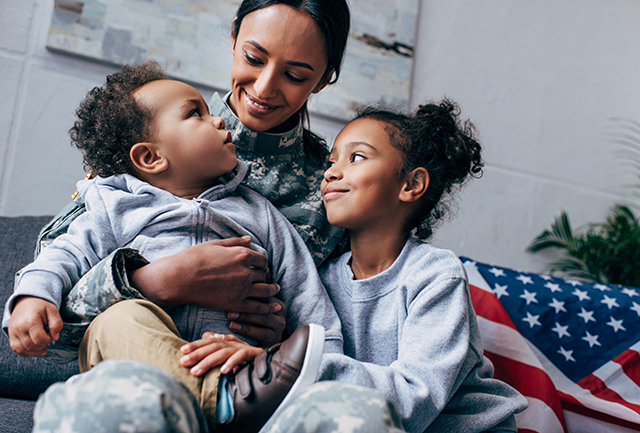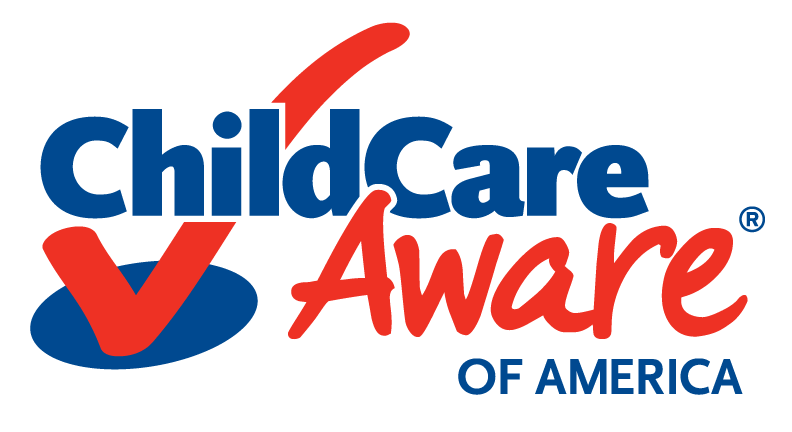

It’s Memorial Day Weekend and a time to celebrate and remember those who died in service to our country – over a million men and women who have died since the Civil War protecting our people and democratic values – not “democratic” as in political party, but the big “D” – Democracy – a government in which power is vested in the people – a representative democracy with free elections to affect nationwide policies.
We have so much to learn from the military and how they take care of their families. Just one example, out of many, can be seen in the system of child care for children in military families compared to the system of child care for children in non-military families.
Last month, Child Care Aware® of America released “We Can Do Better: 2013 Update,” the 7th in a series of licensing reports scoring and ranking the states based on state child care center licensing policies and oversight. According to the report, states averaged a score of 92 out of 150, a grade of 61 percent – very close to a failing grade. The Department of Defense (DoD) child care system was scored and ranked as well, since it is a system analogous to a state system serving many children throughout the country. The DoD child care system topped the list, outscoring all the state systems, with a strong framework based on safety and child development. How did the remainder of the states fare? The top 10 states earned a “C”, another 21 earned a “D,” and the remaining 20 states failed.
Military Child Care Policies
A U.S. Senate Committee hearing in 2011 compared the Military Child Care Act (MCCA), which governs the child care policies set by DOD with the Child Care and Development Block Grant (CCDBG), which is overseen by the U.S. Department of Health and Human Services (HHS) – however, individual state policies vary greatly. Both acts have parental choice in child care settings as a centerpiece. Both acts were passed by Congress to respond to an increase in working women and a greater need to make child care more affordable for working families. But, that is about all the two laws have in common.
The Department of Defense has developed a system of quality child care. Nearly 100 percent of child care centers overseen by the military are nationally accredited compared to less than eight percent of child care centers in civilian communities. The military child care system has minimum protections for children, parents can choose from an array of settings that all meet these minimum protections, and there is accountability for how DoD child care funds are spent.
In contrast, CCDBG has led to a patchwork array of child care settings under different laws in every state. There is no system. There are no minimum protections for children. Parents can choose licensed or unlicensed care. There is little accountability for how public dollars are spent.
The MCCA requires a comprehensive background check (fingerprints against criminal records) for child care providers. In contrast, CCDBG does not require a background check. Do background checks matter? Parent advocate, Elly Lafkin’s baby died in a child care program in 2012. A police investigation revealed a history of criminal offenses, which the provider had committed under various aliases, but Elly and her husband didn’t know because Virginia doesn’t require a fingerprint check so parents aren’t aware of offenses an individual with various aliases has committed.
The MCCA requires the Secretary of Defense to establish a uniform training program for child care providers. The act requires, at a minimum, that training shall cover:
- Early childhood development
- Activities and disciplinary techniques appropriate to children of different ages
- Child abuse prevention and detection
- CPR and other emergency medical procedures
As a result, DoD policy establishes a minimum requirement of 40 hours of initial training either before a provider cares for children or early on once hired. Also, DoD requires 24 hours of annual training as follow-up and to reinforce initial learning.
State Child Care Policies
In contrast, CCDBG has no minimum training requirement. State requirements vary greatly. For child care centers,
- Only 21 states require staff training in child development.
- Only 34 states have safe sleep requirements for infants.
- Only 9 states require all staff to learn CPR.
- Only 15 states meet each of the 10 health and safety policies recommended by pediatric experts.
Think a requirement for provider training in safe sleep doesn’t matter? Parent advocate, Nathan Salomonis’ baby died in a licensed child care center in California where there is no safe sleep requirement to protect infants.
The MCCA requires regular unannounced inspections of child care programs. In contrast, CCDBG has no inspection requirement. Nine states conduct inspections of child care centers less often than once a year. About half the states conduct inspections of family child care homes less frequently than once per year.
Think inspections don’t matter? Advocate Vicky Dougherty’s toddler son died in a defective crib in a child care program where an inspection may have potentially noted the problem and saved her son’s life. But, in Pennsylvania, family child care homes are inspected only once every six years.
There are quality child care programs throughout the country. But, licensing laws vary greatly by state and CCDBG—the federal framework for state laws, contains no requirements for background checks or training for providers and no requirement for regular inspections.
CCDBG has not been reauthorized in 17 years. Earlier this month, HHS Secretary Sebelius announced new proposed rules for child care to better promote the safety and healthy development of children through existing regulatory authority. If you think it’s time to provide minimum protections for children in child care, comment today on the regulations.gov web page. If you think it’s time for Congress to reauthorize CCDBG and better protect children in child care and promote quality child care programs, act now.
It is great news that our Democracy created child care systems for military and non-military children. But, now it’s time to fix the system for non-military children. A Democratic society can and should do better for our families.
{{cta(‘689d4ea2-a09a-4346-b3f0-0e1a7ae7c80b’)}}


